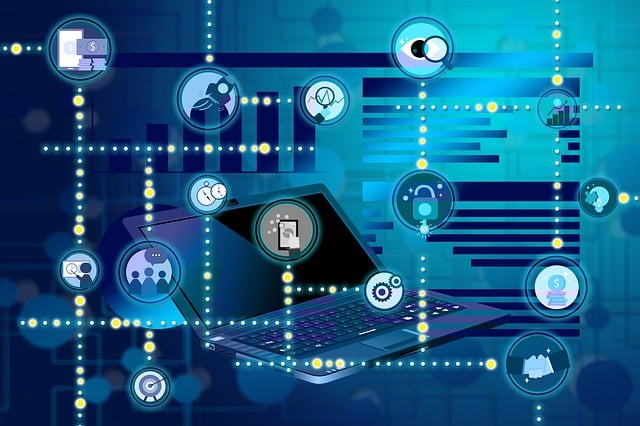AI voice recognition systems are transforming businesses by accurately interpreting human speech through artificial intelligence, natural language processing, and machine learning. In healthcare, these systems revolutionize record-keeping with AI health code compliance tracking, automatically transcribing patient interactions, ensuring HIPAA adherence, and streamlining documentation. Across sectors, AI business voice recognition boosts efficiency, reduces costs, and improves decision-making, while future advancements promise more sophisticated context-understanding capabilities for enhanced automation and personalized interactions.
“Unleashing the power of voice recognition technology, AI business systems are transforming the way we interact with our work environment. This article explores the intricate world of AI voice recognition in healthcare, specifically focusing on its role in enhancing code compliance tracking. We delve into how these intelligent systems streamline processes, improve accuracy, and ensure adherence to regulations. By understanding the benefits and potential, businesses can leverage AI health code compliance tracking for a more efficient and secure operational future.”
- Understanding AI Business Voice Recognition Systems
- Benefits and Applications in Healthcare Compliance Tracking
- Implementation and Future Prospects
Understanding AI Business Voice Recognition Systems

AI business voice recognition systems are transforming the way businesses operate by offering advanced solutions for voice-based interactions and data extraction. These technologies leverage artificial intelligence, natural language processing, and machine learning algorithms to understand and interpret human speech accurately. With AI health code compliance tracking, for instance, these systems can automatically capture and analyze verbal communications in healthcare settings, ensuring adherence to safety protocols and regulatory standards.
This innovative approach enhances efficiency by automating tasks that were previously manual or error-prone. For businesses dealing with large volumes of voice data, such as customer service calls or remote team meetings, AI voice recognition improves accuracy, reduces costs, and frees up resources. It also enables the extraction of valuable insights from voice interactions, facilitating better decision-making and improved customer experiences.
Benefits and Applications in Healthcare Compliance Tracking

AI voice recognition systems offer numerous advantages for healthcare settings, particularly in enhancing AI health code compliance tracking. These technologies can streamline the documentation process by automatically transcribing patient interactions and medical discussions, ensuring accurate and efficient record-keeping. This is especially beneficial for busy healthcare professionals who need to focus on patient care rather than manual data entry.
In terms of applications, AI voice systems can be used to track compliance with various regulations and protocols. For instance, they can monitor and flag conversations related to sensitive patient information, ensuring adherence to privacy laws like HIPAA. Additionally, these systems can assist in tracking the administration of medications, recording treatment plans, and documenting patient consent, thereby improving overall clinical documentation integrity and reducing potential legal risks.
Implementation and Future Prospects

The implementation of AI business voice recognition systems is transforming how companies operate, enhancing efficiency and opening new avenues for innovation. These advanced technologies are being seamlessly integrated into various sectors, from healthcare to customer service, revolutionizing communication and data capture processes. By leveraging machine learning algorithms, these systems can accurately transcribe spoken words, enabling accurate record-keeping and real-time analysis. This is particularly beneficial in industries where compliance with health codes and regulations is paramount, ensuring precise documentation and reducing human error.
Looking ahead, the future prospects of AI voice recognition are promising. As technology advances, we can expect even more sophisticated systems capable of understanding context, intent, and nuances in language. This will lead to improved automation, natural language processing, and personalized interactions. The integration of AI health code compliance tracking, for instance, could streamline record-keeping processes in healthcare settings, making it easier to monitor patient data and adhere to regulatory standards. These advancements will contribute to a more efficient, accurate, and compliant business environment, shaping the way we interact with technology in the years to come.
AI business voice recognition systems are transforming various industries, with healthcare being a prominent beneficiary. The ability to accurately transcribe and analyze spoken words not only enhances efficiency but also plays a crucial role in achieving stringent health code compliance tracking. As technology advances, these systems are expected to become even more sophisticated, offering improved accuracy, enhanced security, and seamless integration across diverse business processes. By leveraging AI for voice recognition, companies can streamline operations, reduce errors, and stay ahead of regulatory requirements in the ever-evolving digital landscape.
